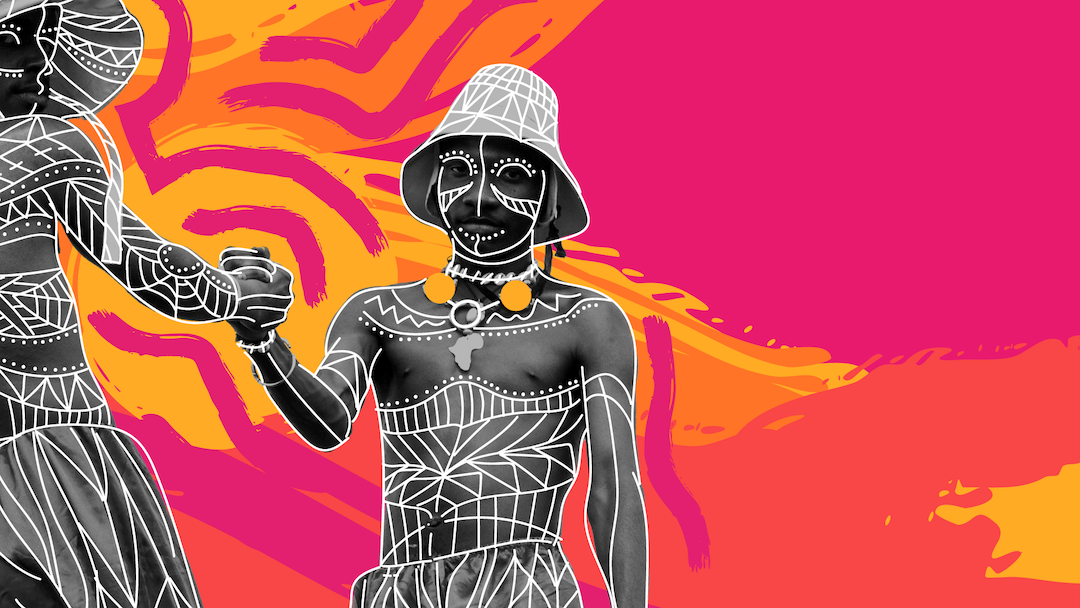Pathways out of Capitalism: Building Forward, New and Radical

Guest post by Âurea Mouzinho. Read more about her in her bio below.
On the evening of February 17th 2021, Africans in the Diaspora hosted the second of its Chop It Up dialogue series with the theme Capitalism: What is Our Exit Strategy? The event offered an opportunity to listen to different responses to its title question, blending the richly distinct experiences of three anti-capitalist theorists, campaigners and organizers.
Speaking from Morocco, Omar Aziki (ATTAC/CADTM) started by expounding on the role of sovereign debt as a mechanism of capitalist globalization rooted in the patterns of colonial plunder and exploitation of Africa’s resources and peoples. Omar pointed out an important paradox in the mainstream debt discourse. Whilst former colonizing powers refuse to acknowledge their historical, social and ecological debt to the global south, they simultaneously ensure that African countries spend more of their national budgets to service unfavorable foreign loans than they invest on social needs. Omar’s presentation made clear that, by facilitating the draining of African resources for the benefit of global financial elites, debt is thus an effective tool of capitalist accumulation. “We need to mobilize the people of the world to reverse these trends.” With this call, Omar underscored that the charting of a path out of capitalism needs to be infused with the radical demands of the global anti-debt movement: debt cancellation, restraining financial capital and the reform of the international financial infrastructure to serve the interests of the majority world.
Feminist activist scholar, Lebohang Pheko, built on these ideas bringing up a number of poignant concerns. Firstly, the gap between the largely informal nature of work across the continent and the social protection measures which are not created for workers in these spaces. Secondly, the hollowing out of the social functions of the state for the benefit of corporate interests. Thirdly, the resistance against collective measures of redistribution in order to concentrate wealth in the hands of a few. The last pillars she felt must be struck for the oppressive house to fall were the unfettered exploitation of nature and the perpetuation of cycles of precariousness through the mis-characterisation of work, particularly women’s unpaid care work.
Lebohang also weaved in an analysis of how the COVID-19 pandemic has exposed the fallacies of neoliberal orthodoxy. For her, the pandemic is the latest in the series of recurrent crises of capitalism brought about by decades of structural adjustment and austerity policies including the under-investment in public healthcare infrastructure. She defended that the path to out the crisis is not through “building back better” but rather “building forward, new and radical”. Beyond recovery – which hinges on the illusory quest for a more humane, ethical or sustainable capitalism – Lebohang appealed to the power of revolutionary disruption and creation: a call to break away from the now normalized patterns of dispossession and a collective effort to build economic realities that are sustainable, nourishing and ecologically balanced. This is a proposal to center the lived realities of the peoples across the global south and model our economies in the image of the marginalized, and of black women in particular.
Cooperation Jackson in Mississippi, USA provides an inspiring example of post-capitalist organizing in practice. Framing Jackson as a “sacrifice zone” within a key center of capitalist accumulation, Kali Akuno, co-founder and co-director of Cooperation Jackson, stated plainly “this cannibalistic beast will destroy anything and everything in its path, whether internal or external to the project.” He went on to describe how the various cooperatives of Cooperation Jackson have worked with marginalized communities in the majority black city of Jackson to counter decades-old systemic public mismanagement, and racialized state neglect and disenfranchisement. Self-determination, self-reliance, self-respect and self-governance are the pillars of Cooperation Jackson. The work that Kali described is grounded in the engagement of the community’s creativity, skills and resources to “produce for ourselves what we need”. The photos Kali shared showed a portrait of a people that refuse to be swallowed whole by the perverse logic of profit and the alienation from their collective power to effect change, particularly at times of crisis such as the COVID-19 pandemic.
All three speakers shared a sentiment that anti-capitalist organizing must be rooted in a commitment to see the world for what it is but at the same time push forward with unrelenting hope that another world, a better one, is possible. On the whole, Capitalism: What is Our Exit Strategy? invited a reflection on some of the fundamental aspects of devising anti-capitalist exit strategies. One, that theorizing and collective imaginings ought to underscore the very values that are systematically undermined: solidarity, collective power, redistributive justice, revolutionary democracy as well as the respect and care for nature and indigenous knowledge systems. Two, the development of solutions to improve the material conditions of life remains central to the anti-capitalist project. Finally, to sustain the anti-capitalist endeavors one ought to remain vigilant, active and, most importantly, hopeful that the fruits of collectivized and principled resistance will prevail.
Âurea is a feminist political economist and organizer based in Angola. Follow her on Twitter @kitondowe. Catch up with the full recording for this event here.
Related Stories



